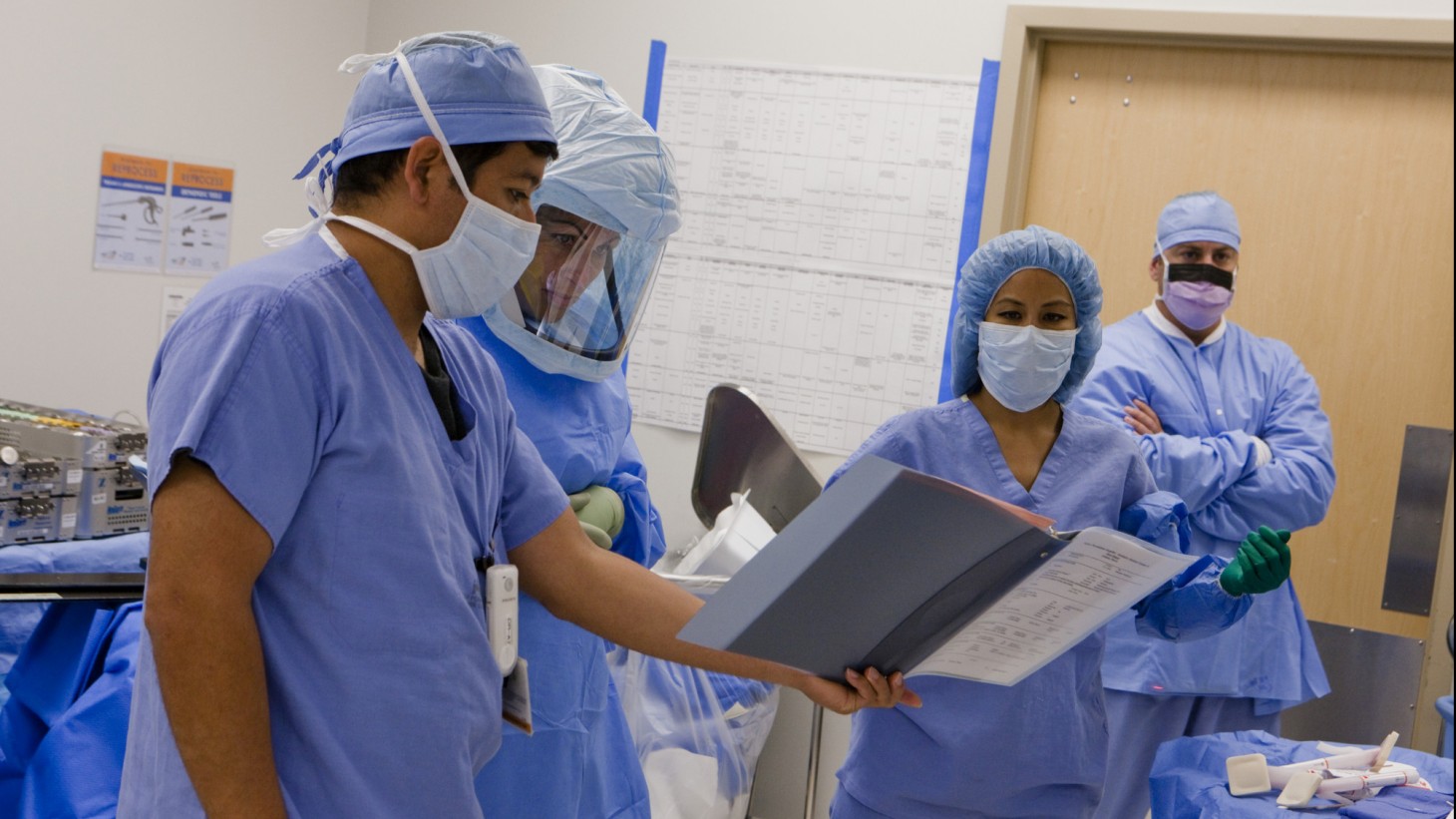HANK Spring 2013
From the Desk of Henrietta: Cough It Up!

A simple way to help ensure patients stay safe is for members of a surgery team, like this one, to introduce themselves to one another before they begin a procedure.
It’s not hard to figure out why people are hesitant to speak up at work. Offering a suggestion for improvement or pointing out when you think something isn’t right exposes a person to any number of possible responses—many of them unpleasant.
There’s the sarcastic retort. There’s the deafening silence. There’s the reply, pointing out exactly why you’re wrong, delivered in the nicest of tones but carrying an unmistakable edge of one-upsmanship. Who needs it? Who wants to create waves and risk a good job?
But when we don’t speak up, we put health and happiness at risk. As Doug Bonacum, Kaiser Permanente’s vice president of quality, safety and resource management, says in this issue’s cover story, speaking up “is mission critical for worker and patient safety.”
In addition to the moral imperative of protecting people from injury, there’s a strong economic incentive for speaking up. Improvement doesn’t typically come from a single person’s great idea—it comes from people sharing ideas. And we at KP have to keep improving, finding ways to deliver care as good as or better than we deliver now with fewer dollars per member. Our future depends on it.
Since we get good at what we practice, we each have to practice speaking up. Practice means starting with lots of baby steps—don’t tackle the high-stakes stuff first! And let’s practice being good listeners, too, providing the space that lets others speak up safely.
The Labor Management Partnership and unit-based teams provide the framework for transforming what Bonacum calls a “culture of fear” around speaking up. But with that framework in place, it’s still up to each and every one of us to find the courage to address the immediate, particular obstacles that keep us silent.

